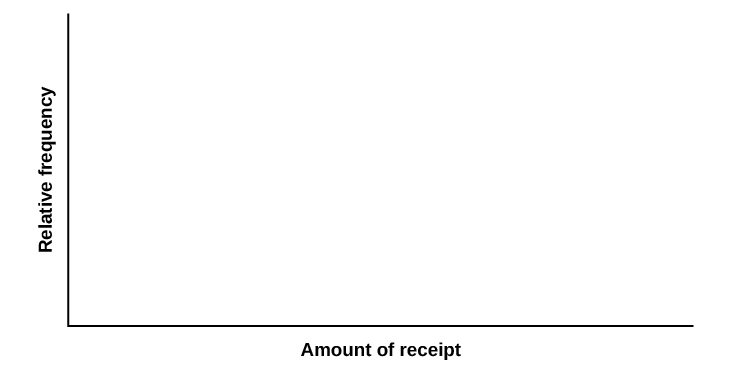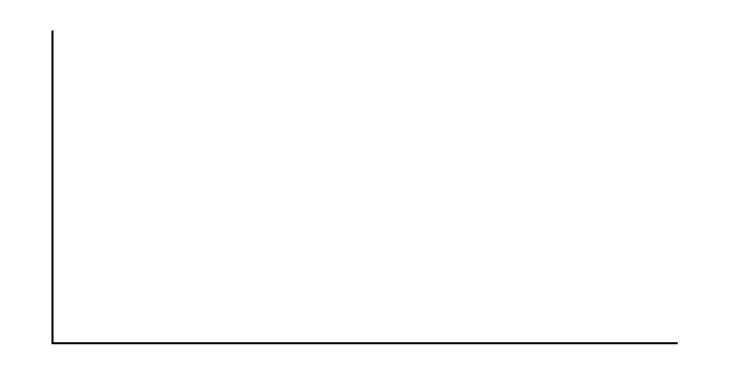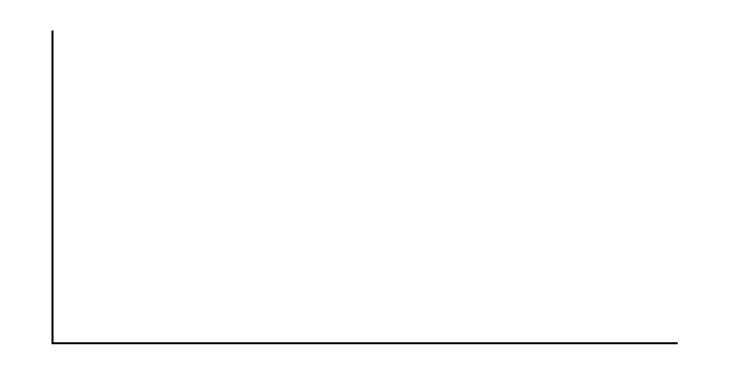Class Group Activities/Projects
Chapter 11 Project I: Chi-Square Goodness-of-Fit
Class Time:
Names:
- The student will evaluate data collected to determine if they fit either the uniform or exponential distributions.
Collect the Data
Go to your local supermarket. Ask 30 people as they leave for the total amount on their grocery receipts. (Or, ask three cashiers for the last ten amounts. Be sure to include the express lane, if it is open.)
You may need to combine two categories so that each cell has an expected value of at least five.
- Record the values.
__________ __________ __________ __________ __________ __________ __________ __________ __________ __________ __________ __________ __________ __________ __________ __________ __________ __________ __________ __________ __________ __________ __________ __________ __________ __________ __________ __________ __________ __________ - Construct a histogram of the data. Make five to six intervals. Sketch the graph using a ruler and pencil. Scale the axes.

- Calculate the following:
- [latex]\overline{x}=[/latex]________
- s = ________
- s2 = ________
Uniform Distribution
Test to see if grocery receipts follow the uniform distribution.
- Using your lowest and highest values, X ~ U (_______, _______)
- Divide the distribution into fifths.
- Calculate the following:
- lowest value = _________
- 20th percentile = _________
- 40th percentile = _________
- 60th percentile = _________
- 80th percentile = _________
- highest value = _________
- For each fifth, count the observed number of receipts and record it. Then determine the expected number of receipts and record that.
Fifth Observed Expected 1st 2nd 3rd 4th 5th - H0: ________
- Ha: ________
- What distribution should you use for a hypothesis test?
- Why did you choose this distribution?
- Calculate the test statistic.
- Find the p-value.
- Sketch a graph of the situation. Label and scale the x-axis. Shade the area corresponding to the p-value.

- State your decision.
- State your conclusion in a complete sentence.
Exponential Distribution
Test to see if grocery receipts follow the exponential distribution with decay parameter [latex]\frac{1}{\overline{x}}[/latex].
- Using [latex]\frac{1}{\overline{x}}[/latex] as the decay parameter, X ~ Exp(_________).
- Calculate the following:
- lowest value = ________
- first quartile = ________
- 37th percentile = ________
- median = ________
- 63rd percentile = ________
- 3rd quartile = ________
- highest value = ________
- For each cell, count the observed number of receipts and record it. Then determine the expected number of receipts and record that.
Cell Observed Expected 1st 2nd 3rd 4th 5th 6th - H0: ________
- Ha: ________
- What distribution should you use for a hypothesis test?
- Why did you choose this distribution?
- Calculate the test statistic.
- Find the p-value.
- Sketch a graph of the situation. Label and scale the x-axis. Shade the area corresponding to the p-value.

- State your decision.
- State your conclusion in a complete sentence.
- Did your data fit either distribution? If so, which?
- In general, do you think it’s likely that data could fit more than one distribution? In complete sentences, explain why or why not.

